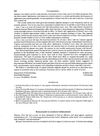Ketoconazole
aka - Nizoral
- keto
🛒 Where to find Ketoconazole
Tracking 9 topical products and 1 oral product by companies like Amazon, Hims, Inhouse Pharmacy, Keeps and Minoxidil Express. View all 10 products »Ketoconazole is a synthetic antifungal medication extensively used to treat various fungal infections. It functions by inhibiting the synthesis of ergosterol, a critical component of fungal cell membranes, thereby exerting its antifungal effects. Apart from its direct antifungal properties, ketoconazole also possesses anti-inflammatory and anti-androgenic activities, making it a versatile agent in dermatology, especially in conditions like seborrheic dermatitis and dandruff. Over the years it has expanded its role into the treatment of hair loss, notably androgenetic alopecia.
By reducing the action of dihydrotestosterone (DHT) on hair follicles, which is a key factor in AGA, ketoconazole shampoo has been found to improve hair density and size, as well as the proportion of anagen follicles. Research has highlighted its efficacy in increasing hair shaft diameter and improving the hair growth cycle, showcasing results comparable to those of 2% minoxidil in some studies. Innovations like ketoconazole-loaded solid lipid nanoparticles are being researched for better skin penetration and prolonged effectiveness, enhancing its potential in hair loss therapies.
Within the hair loss community, ketoconazole is often discussed in conjunction with other treatments like finasteride and minoxidil. Users report improvements in hair density and scalp health, although opinions on its efficacy as a standalone treatment for hair regrowth are mixed. The community often highlights its benefits in treating scalp conditions linked to hair thinning. Despite varying experiences, ketoconazole is generally regarded as a valuable addition to hair loss treatment regimens, particularly due to its multi-faceted approach in targeting both hair loss and scalp health.
Research
20 / 1000+ results
research A Prospective Randomized Trial Comparing Low Dose Flutamide, Finasteride, Ketoconazole, and Cyproterone Acetate-Estrogen Regimens in the Treatment of Hirsutism

research Ketoconazole Shampoo: Effect of Long-Term Use in Androgenic Alopecia

research Ketoconazole Therapy for Women with Acne and/or Hirsutism

research Nudging Hair Shedding by Antidandruff Shampoos: A Comparison of 1% Ketoconazole, 1% Piroctone Olamine, and 1% Zinc Pyrithione Formulations

research Ketoconazole in Cutaneous Leishmaniasis

research Topical Ketoconazole: A Systematic Review of Current Dermatological Applications and Future Developments

research Efficacy of Combined Cyclosporine A and Ketoconazole Treatment of Anal Furunculosis

research Topical Application of Ketoconazole Stimulates Hair Growth in C3H/HeN Mice

research A Prospective Randomized Trial Comparing Low Dose Flutamide, Finasteride, Ketoconazole, and Cyproterone Acetate-Estrogen Regimens in the Treatment of Hirsutism

research The Role of Ketoconazole 2% Shampoo in the Treatment and Prophylactic Management of Dandruff
research Ketoconazole Use in the Treatment of Ovarian Hyperandrogenism

research In Vivo Investigation in Pigs of Intestinal Absorption, Hepatobiliary Disposition, and Metabolism of the 5α-Reductase Inhibitor Finasteride and the Effects of Coadministered Ketoconazole

research Promotive Effect of Topical Ketoconazole, Minoxidil, and Minoxidil with Tretinoin on Hair Growth in Male Mice

research Topical Ketoconazole for the Treatment of Androgenetic Alopecia: A Systematic Review

research Prospective, Open-Label, Multi-Center, Randomized Study to Compare the Effectiveness, Safety, and Tolerability of Lulican Shampoo Versus Ketoconazole Shampoo in Indian Adult Patients With Mild to Moderate Scalp Seborrheic Dermatitis (LEAD Study)
research Ketoconazole in the Treatment of Dermatomycosis in Cats and Dogs

research In Vitro and In Vivo Assessment of Metabolic Drug Interaction Potential of Dutasteride with Ketoconazole

research In Vitro, Ex Vivo, Penetration (EpiDerm) and in Vivo Dermatokinetics of Ketoconazole Loaded Solid Lipid Nanoparticles for Topical Delivery

research Trichogenic Effect of Topical Ketoconazole Versus Minoxidil 2% in Female Pattern Hair Loss: A Clinical and Trichoscopic Evaluation
